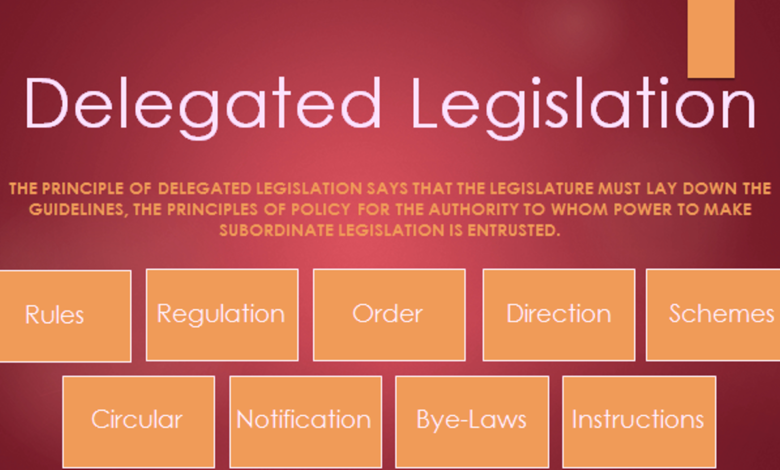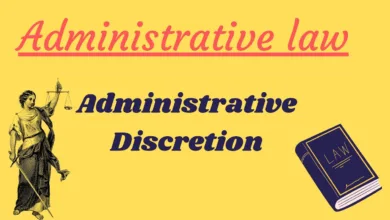Delegated Legislation in India: Overview, Need, Cases

In this article we will discuss What is Delegated legislation? , Why is Delegated legislation important in India, What are the cases related to Delegated legislation?
Overview: Delegated Legislation
Delegated legislation is the authority vested in a body other than the sovereign power to create laws and regulations. This process involves the delegation of duties from the primary legislative body to subordinate bodies within the government.
Importance: Essential for administrative procedures, it allows for the distribution of legislative duties, reduces the burden on the primary legislature, and brings specialized expertise into policy-making.
Legal Basis: Article 312 of the Indian Constitution grants the power to delegate legislative responsibilities.
Need for Delegated Legislation in India:
- Burden on Legislature: The constitutional obligations to safeguard citizen rights and formulate policies place significant pressure on the legislature, which lacks the time and expertise for detailed policy formulation in every welfare aspect.
- Executive Expertise: Delegated legislation involves the collaboration of the executive, utilizing their specialized knowledge to contribute to policy formulation.
- Socio-Economic Development: Delegated legislation significantly contributes to the country’s socio-economic growth by shaping well-considered policies crucial for citizens’ well-being.
Legal Framework and Case Laws:
- Agriculture Marketing Committee Vs Shalimar Chemical Works Ltd: The Supreme Court highlighted reasons for delegating legislative powers, emphasizing the complexity of certain areas, the need for experimentation, and the Executive’s contribution to policymaking.
- St. John’s Teachers Training Institute Vs Regional Director, NCTE: The court reiterated the importance of delegated legislation, emphasizing its role in reducing legislative burdens, improving citizen well-being, and shaping constitutional law and administrative systems.
- Pre and Post-Constitutional Periods: Pre-constitutional cases like R Vs Burah and Jitender Nath Gupta Vs State of Bihar dealt with delegation confusion, whereas the post-constitutional period clarified conditions for delegation through the In Re Delhi Laws Act case.
Tests for Delegation: The three tests set in the In Re Delhi Laws Act case ensure the delegation remains within the legislative authority’s scope, doesn’t negate legislative powers, and avoids creating a parallel legislative body.
Judicial Opinions: Judges’ views varied on delegated legislation, with some advocating strict delegation control, others supporting wider delegation, and a middle-ground opinion emphasizing regulated delegation.
Conclusion:
Controlled Delegation: While delegation is necessary, it must be regulated with checks and balances to prevent misuse or overextension of power.
Safeguards: Implementing strict regulations ensures a balanced administrative system and enhances the effectiveness of enacted statutes and laws.
| Daily current affairs Updates | Click Here |
| Law Notes Free Channel | Click Here |
References:
- Jain, MP & Jain, SN. Principles of Administrative Law, Seventh Edition, 2017.
- Salmond, Jurisprudence, 12th Edition.
- Case Laws: D.S Grewal Vs State of Punjab, Agriculture Marketing Committee Vs Shalimar Chemical Works Ltd, St. John’s Teachers Training Institute Vs Regional Director, NCTE, R Vs Burah, Jitender Nath Gupta Vs State of Bihar, In Re Delhi Laws Act.




